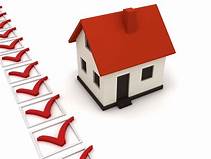!--more--> This represents a 59.7% increase from the market potential low point reached in February 1993. The market potential for existing-home sales increased by 4.7% compared with a year ago, a gain of 240,050 (SAAR) sales.
This represents a 59.7% increase from the market potential low point reached in February 1993. The market potential for existing-home sales increased by 4.7% compared with a year ago, a gain of 240,050 (SAAR) sales.
Currently, potential existing-home sales is 1.37 million (SAAR), or 20.3% below the pre-recession peak of market potential, which occurred in March 2004.
Market Performance Gap
The market for existing-home sales outperformed its potential by 1% or an estimated 53,900 (SAAR) sales. The market performance gap decreased by an estimated 14,400 (SAAR) sales between December 2019 and January 2020.
Chief Economist Analysis: Demand Soars, Supply Sinks
“The housing market started the year off strong, with the market potential for existing-home sales reaching its highest level since January 2018, according to our Potential Home Sales Model,” said Mark Fleming, chief economist at First American. “Housing market potential increased 1.4% in January 2020 relative to the previous month, and grew 4.7% year over year, an increase of 240,050 potential existing-home sales and the highest rate of yearly growth since December 2017. Actual existing-home sales exceeded housing market potential by 1%, or an estimated 53,900 seasonally adjusted annualized sales."
Fleming said the growth in market potential for existing-home sales was primarily fueled by positive market demand dynamics. "In 2020, 4.8 million millennials will turn 30–the peak age for home-buying. They’re fortunate to be entering the housing market at a time of historically low mortgage rates and a strong economy. However, there are challenges,” said Fleming, noting that millennials face a very limited supply of existing homes available for sale.
Lower Rates and Wage Growth Boost Affordability
“The primary reason for increased housing market potential compared with one year ago was increased house-buying power, how much home one can afford to buy given household income and the prevailing mortgage rate," Fleming says. "In January, after three months of slightly increasing mortgage rates, the 30-year, fixed-rate mortgage declined to 3.6%, 0.8 percentage points lower than one year ago.”
New Household Growth Boosts Demand for Homes
“According to recent estimates, 1.65 million new households were formed between December 2018 and December 2019. As more new households are formed, demand for housing rises,” said Fleming. “The increase in household formation enhanced market potential by 103,380 potential home sales in January compared with last year.”






